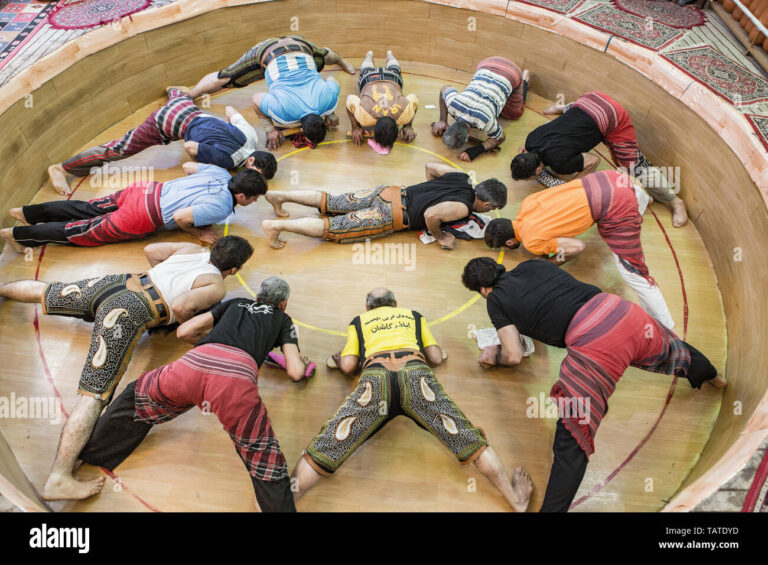Insider Hacks for Understanding the Drama Behind Every Epic Match Recap!
Ever sat down with a steaming cup of coffee, opened a match recap, and felt utterly lost? You know the feeling: the excitement of the game is palpable, but the details seem to slip through your fingers like sand. Fear not, dear reader! Whether you’re a die-hard fan or a casual observer, understanding the intricate narratives behind every epic match recap can enhance your viewing experience tenfold. Let’s dive deep into the drama behind those recaps and uncover some insider hacks that will make you feel like you’ve been there all along—without the need for a time machine.
Setting the Scene: Context is Everything
One of the first things to grasp about match recaps is that context is king. Think about it: a game doesn’t exist in a vacuum. There’s history, rivalry, and even weather conditions that can influence the outcome. For instance, if you read a recap of a soccer match between Manchester United and Liverpool, the historical animosity between the two clubs adds layers to the narrative. You might find phrases like “the pressure was on” or “a must-win for the Red Devils,” which do more than just set the stage; they evoke emotions that resonate with fans.
Understanding Team Dynamics
Another essential piece of the puzzle is the dynamics within the teams. Each match recap often highlights key players and their contributions, but it’s crucial to go beyond the statistics. What’s the relationship between the coach and the players? Are there any recent injuries that might affect performance? For example, if a star quarterback is playing while nursing a sprained ankle, the recap might mention that he “struggled to find his rhythm,” and trust me, this paints a vivid picture of the hurdles faced during the game.
I remember when I first started following basketball, and I’d read recaps that mentioned a “team’s chemistry.” I was baffled! What does that even mean? Well, it turns out that it’s about how well players connect on and off the court. Players who communicate well and trust one another can often create magic during tight moments, which is something recaps might capture with dramatic flair.
Read Between the Lines: The Art of Storytelling
Much like a compelling novel, a match recap tells a story. Look for the narrative arc—there’s usually a setup, a conflict, and a resolution. A good recap will often employ dramatic language that captures the highs and lows of the game. For example, instead of simply stating that a team scored, it may read, “In a stunning twist, the underdogs fired back with a last-minute goal that left the crowd gasping.” That’s not just play-by-play; it’s storytelling!
The Power of Quotes
Quotes from players and coaches can breathe life into a recap. They provide insights that statistics alone cannot. When a player says, “We fought hard, and our fans pushed us to the finish,” it gives readers a glimpse into the team’s mindset. It’s like having a backstage pass to the emotional rollercoaster that is sports.
And let’s be real—who doesn’t love a good post-match quote that’s laced with a bit of drama? I once chuckled when a football coach, after a particularly tense loss, quipped, “Well, at least the grass was nice.” That’s the kind of humor that humanizes the players and coaches and adds a layer of nuance to the recap.
Statistics: The Backbone of Recaps
Let’s face it, stats can be dry. But they’re the backbone of match recaps. They provide definitive evidence of what transpired on the field or court. However, it’s important to not get bogged down in numbers. Instead, focus on how they relate to the story. A recap might say something like, “Despite having 60% possession, the team only managed two shots on target.” Here, you can see that while one team was actively controlling the game, they failed to capitalize on opportunities, which can lead to a deeper understanding of the match’s outcome.
Advanced Metrics: A New Era
In recent years, advanced metrics have entered the fray. Terms like “expected goals” (xG) and “player efficiency rating” (PER) can sound daunting, but they are essential for understanding modern sports. These metrics provide context that traditional stats often miss. For instance, if a player has a high xG but low goals scored, it might indicate they are getting into great positions but failing to convert them. Recaps that include these insights can lead to richer discussions about player performance and strategy.
Fan Reactions: The Pulse of the Game
After a game, the true drama often unfolds on social media. Fans take to Twitter, Instagram, and Facebook to express their thoughts, and many recaps will include snippets of these reactions. This not only adds flavor but also shows the emotional impact of the game on its supporters.
Memes and GIFs: The New Language of Sports
Who can forget the viral memes that explode after a game? They often encapsulate the essence of what happened in a way that words sometimes can’t. A picture of a player facepalming after missing a crucial shot tells a story of its own. Recaps that incorporate these elements capture the zeitgeist of the game, making the reading experience more relatable and enjoyable.
The Role of the Analyst
Commentators and analysts play a vital role in shaping how we perceive a match. They provide insights that go beyond what’s happening on the field. Their analysis often highlights tactical shifts, player form, and other subtleties that can be lost in the heat of the moment. A good analyst might note, “The left flank was exploited throughout the match, indicating a significant tactic that the coach will need to address.”
Listening to the Experts
When reading a recap, consider seeking out expert opinions. Sports analysts often publish their thoughts post-game, providing a deeper understanding of the match. Think of them as your personal guides through the labyrinth of sports drama. You might stumble upon a former player’s insight that resonates with your own observations, or perhaps they’ll point out something you completely missed—like a subtle off-the-ball movement that shifted the game.
Watch the Highlights: A Visual Aid
In an age where video content reigns supreme, don’t underestimate the power of match highlights. Watching a condensed version of the game can provide clarity that words sometimes lack. You’ll see pivotal moments in real time, and it will help solidify your understanding of the recap. Try to pair your reading with highlights to really grasp the drama that unfolded.
The Emotional Rollercoaster
There’s something magical about watching a game unfold. I remember the first time I witnessed a last-minute goal that turned defeat into victory. The wave of emotions that surged through the crowd was electric, and the atmosphere is something that a recap can only partially convey. So, when you read about that “heart-stopping moment,” take the time to relive it through the highlights.
Dive Deeper: Resources for Fans
For those who want to take their understanding to the next level, numerous resources are available. Think of websites like FiveThirtyEight, which offers statistical analysis and predictions, or ESPN for comprehensive coverage. Additionally, podcasts and YouTube channels dedicated to sports analysis can provide a wealth of information.
Join the Community
Don’t forget the power of community! Engaging with other fans can offer fresh perspectives and interpretations. Online forums, social media groups, or even local fan meetups can lead to insightful discussions that enhance your understanding of the game. You might find yourself in a spirited debate about whether that offside call was legitimate or just another referee blunder (which, let’s be honest, we’ve all raged about at some point).
Summarizing the Drama
By now, it should be clear that understanding the drama behind every epic match recap requires a multifaceted approach. It’s not just about the final score; it’s about the context, the storytelling, the stats, and the emotions that come with it. So next time you sit down to read a recap, remember these insider hacks:
- Always consider the context of the match.
- Look for the narrative arc and storytelling elements.
- Pay attention to quotes and player insights.
- Don’t ignore statistics; they tell a story of their own.
- Engage with fan reactions and social media commentary.
- Dive into expert analysis to gain deeper insights.
- Watch highlights to relive the drama visually.
- Explore additional resources and join the fan community.
Conclusion: Your Journey as a Fan
Each match is a story waiting to be told, and every recap is a glimpse into that unfolding drama. As fans, we have the opportunity—and I dare say, the privilege—to immerse ourselves in these narratives. So the next time you read a match recap, remember the layers of drama that lie beneath the surface. Embrace the emotion, the statistics, and the community that surrounds sports. Because, at the end of the day, it’s not just a game; it’s a shared experience that brings us all together. And isn’t that what makes sports truly epic?













